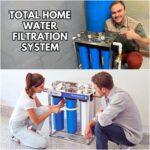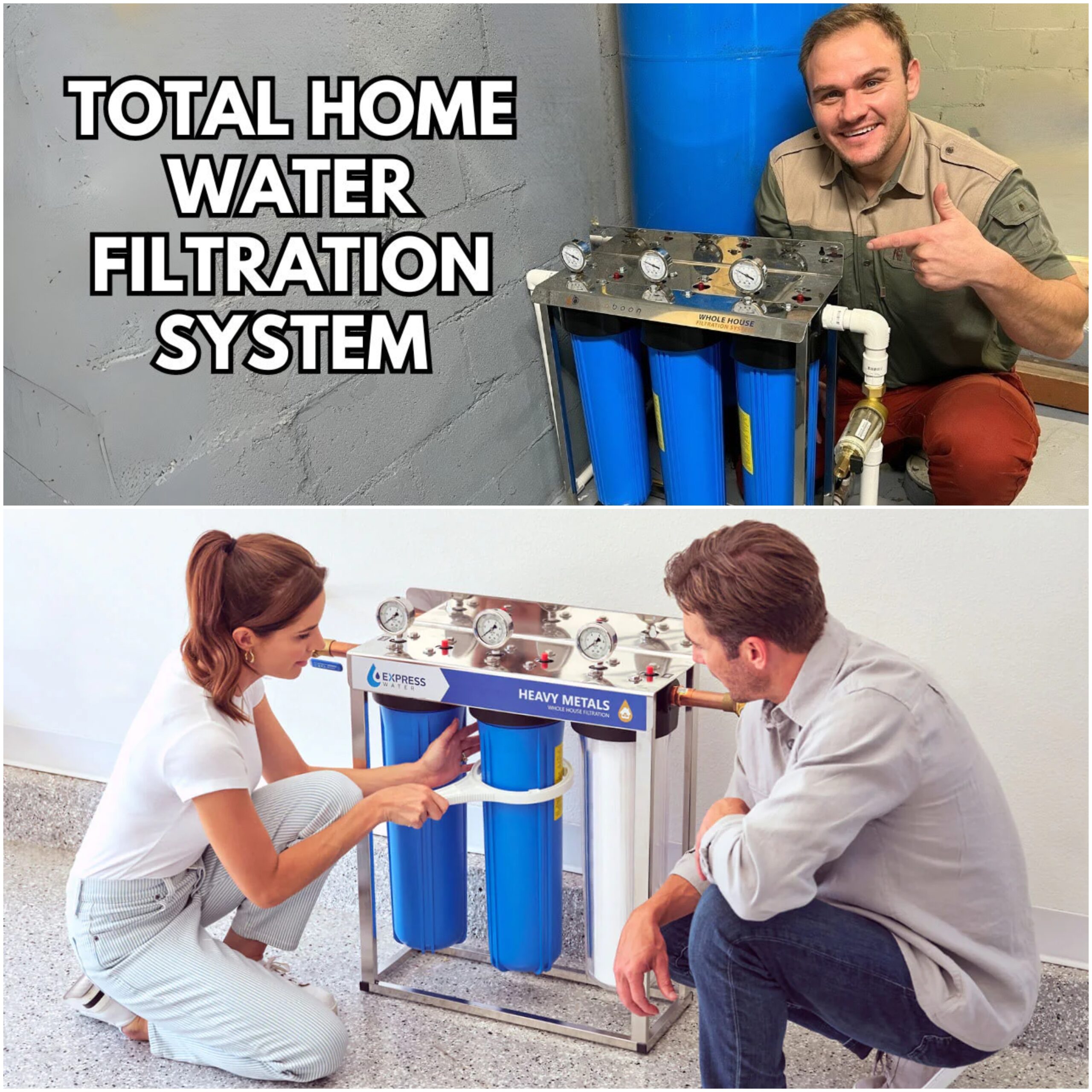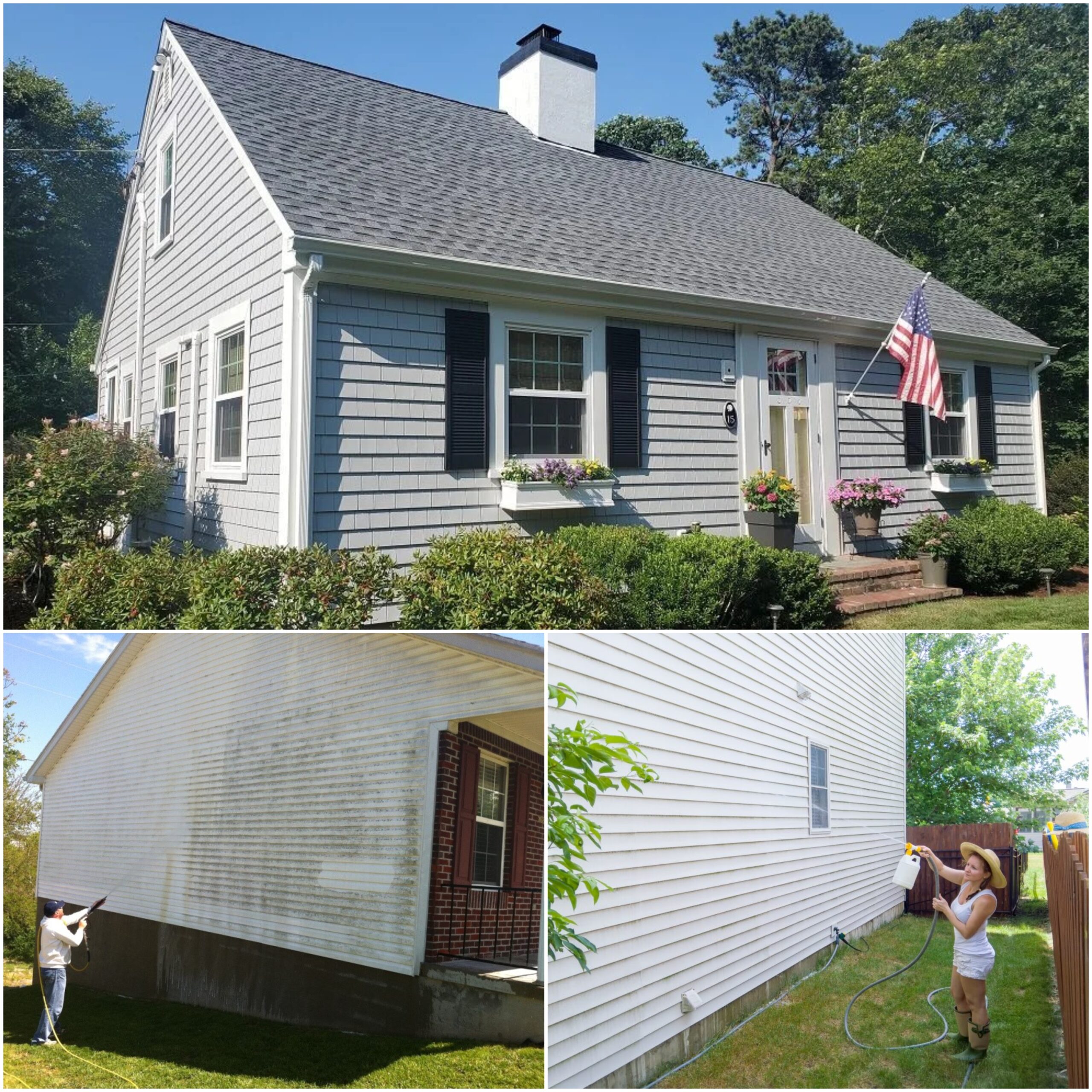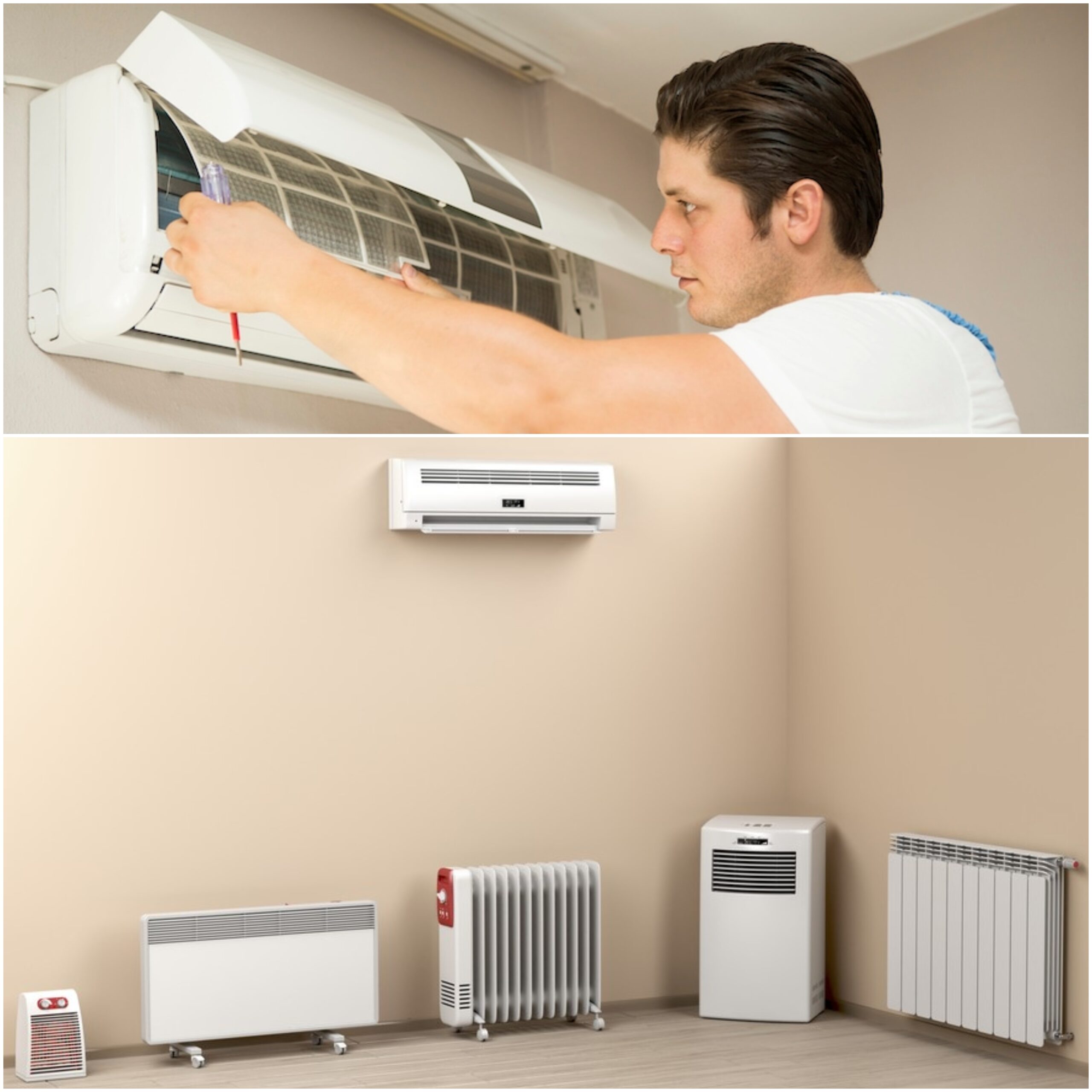Every American home must have access to safe and clean drinking water. Home water filtration systems are becoming a common way to make sure that drinking water is of good quality.
These devices purify tap water of dangerous impurities like germs, heavy metals, and chlorine. Also, they boost the water’s flavor and aroma, making it more pleasurable to drink and use in cooking.
Home water filtration systems, however, require routine maintenance and care, just like any other household appliance.
You can continue to enjoy safe, delicious water for many years to come if you realize how important it is to maintain your water filtration system.
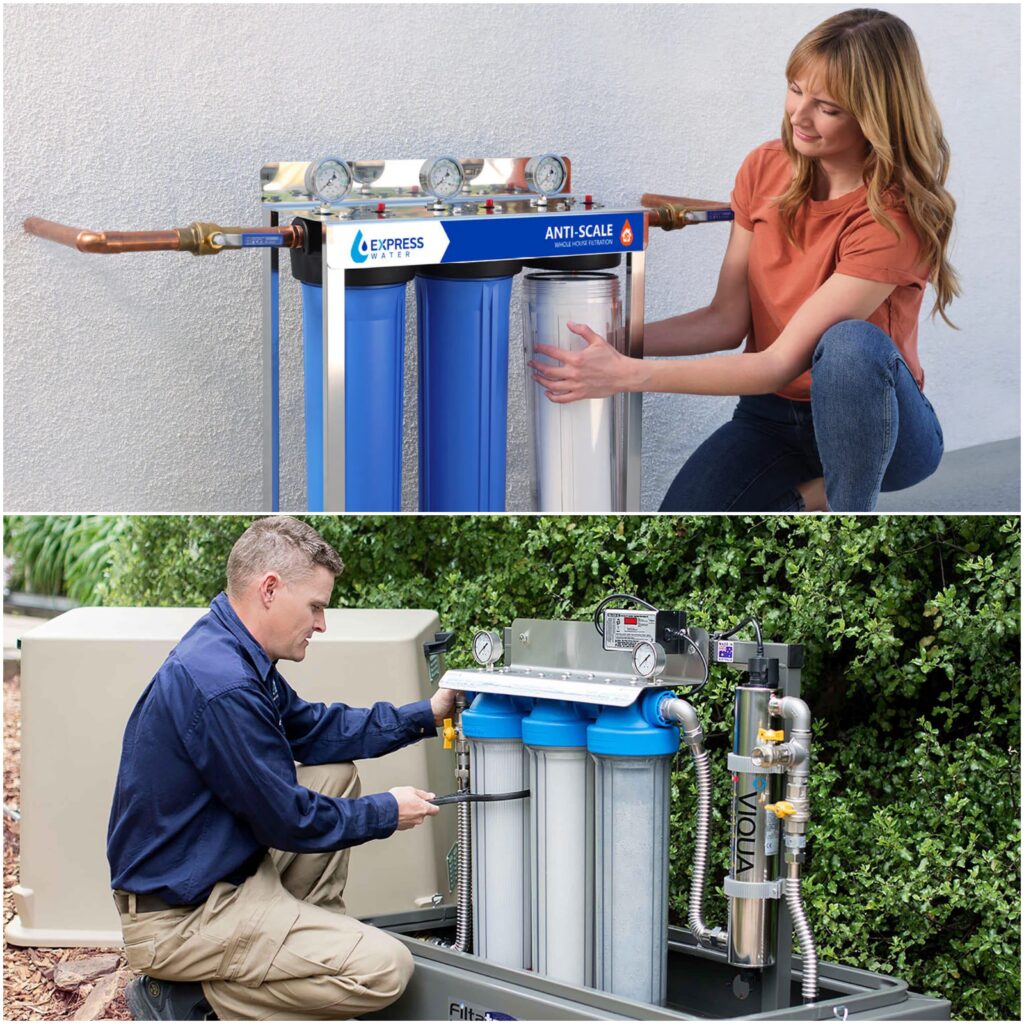
Home Water Filtration System
Why Water Filtration Maintenance is Essential?
1. Optimal Performance
- Your water filtration system operates smoothly with routine maintenance.
- The system effectively removes contaminants, providing your family safe, delicious water due to clean filters and well-maintained parts.
- Maintaining the system properly also extends its lifespan, saving you money on replacements or repairs.
2. Risks of Neglecting Maintenance
- Ignoring maintenance can result in clogged filters, reduced water flow, and higher energy consumption.
- The system may eventually malfunction as a result of this increased strain.
- Even worse, a neglected system could not be able to remove dangerous pollutants, risking the health of your family.
3. Regional Challenges in the USA
- In the USA, some regions have particular water problems.
- Hard water with a high mineral content in the Midwest can lead to filtration system buildup, which lowers system efficiency.
- Regular maintenance is especially more important in older city homes since declining plumbing may introduce additional impurities.
Common Types of Home Water Filtration Systems in the USA
1. Reverse Osmosis Systems
- In the USA, reverse osmosis (RO) systems are among the most widely used water filtration solutions.
- To get rid of impurities like chemicals, salts, and heavy metals, they use a semi-permeable membrane.
- While RO systems offer complete filtration, they need to be maintained often.
- Depending on consumption, this may mean changing the membrane and filters every six to twelve months.
2. Carbon Filters
- Carbon filters are frequently used to remove pollutants such as chlorine and volatile organic compounds (VOCs) from water and to improve its flavor.
- Pitcher filters and under-sink systems frequently have these filters.
- Depending on water usage, maintenance calls for changing the carbon filter every three to six months.
- In cities where municipal water frequently contains chlorine or other contaminants, carbon filters work particularly well.
3. UV Purifiers
- The purpose of ultraviolet (UV) purifiers is to cleanse water by killing bacteria, viruses, and other microbes with UV radiation.
- These systems are usually used in regions where microbial contamination is a concern.
- To guarantee the best performance, UV purifiers require continuous maintenance, such as cleaning the UV lamp and changing the bulb once a year.
4. Use Cases
- Because reverse osmosis systems may remove a variety of impurities, they are frequently chosen in rural regions with well water.
- Carbon filters and UV purifiers are popular options for enhancing taste and safety in metropolitan areas where municipal water may contain fluoride or chlorine.
Read: How to Keep Your Home Heating System Efficient?
Step-by-Step Guide to Maintaining Home Water Filtration System
Step 1 – Understand Your System’s Manual and Schedule Maintenance
- The manufacturer’s handbook should be carefully studied as the first step in maintaining your home water filtration system.
- It offers key information regarding the configuration of the system, the timing of filter replacements, and particular maintenance needs.
- Knowing these specifics guarantees that you are maintaining the system in best shape and following the right processes.
- Put a reminder on your calendar to do routine maintenance at the intervals suggested by the manufacturer.
- By doing this, you can avoid system neglect and keep on course.
Step 2 – Replace Filters Regularly
- Filter replacement is one of the most important parts of maintaining a home water filtration system.
- Filters need to be changed every 6 months to a year, depending on the type of system you have.
- Carbon filters normally need to be changed every 3 to 6 months, whereas reverse osmosis systems usually need to have their filters changed every 6 to 12 months.
- Maintaining a record of when to change your filters guarantees that your system will continue to deliver safe, clean water.
- Contaminants may collect if you neglect to change them, which could lower system efficiency and have an impact on water quality.
Step 3 – Clean the System Components
- Like any appliance, home water filtration systems need to be cleaned on a regular basis to avoid accumulation and preserve peak performance.
- To prevent problems like mineral deposits or mold growth, it is necessary to clean the system’s parts, including the pipes, tanks, and faucets.
- You might need to clean your system more frequently to get rid of calcium and magnesium accumulation if you reside in a region with hard water, like the Southwest.
- Wipe down parts and remove any residue with vinegar or a mild cleanser.
- Frequent cleaning will enhance the flavor of the water and help your system run more smoothly.
Step 4 – Check for Leaks or Damage
- Check your home water filtration system frequently for leaks or obvious damage.
- Inspect the tanks, filters, and pipelines for corrosion, cracks, or loose parts.
- Water waste, decreased efficiency, and possible harm to the surrounding area are all consequences of leaks.
- If you find any problems, replace damaged parts or tighten connections right away.
- Frequent inspections can guarantee the system is operating efficiently and help you prevent expensive repairs.
Step 5 – Conduct Water Quality Tests Periodically
- One of the most important aspects of maintenance is testing the quality of your water.
- Water test kits are reasonably priced and available online or at nearby hardware stores.
- Common pollutants like lead, chlorine, hardness, and pH levels are measured by these kits.
- You can make sure that your filtration system is efficiently eliminating dangerous materials and supplying clean drinking water by doing routine testing.
- It might be time to upgrade your system or replace the filters if you observe any odd outcomes.
Read: How to Keep Your Home Roof in Excellent Condition?
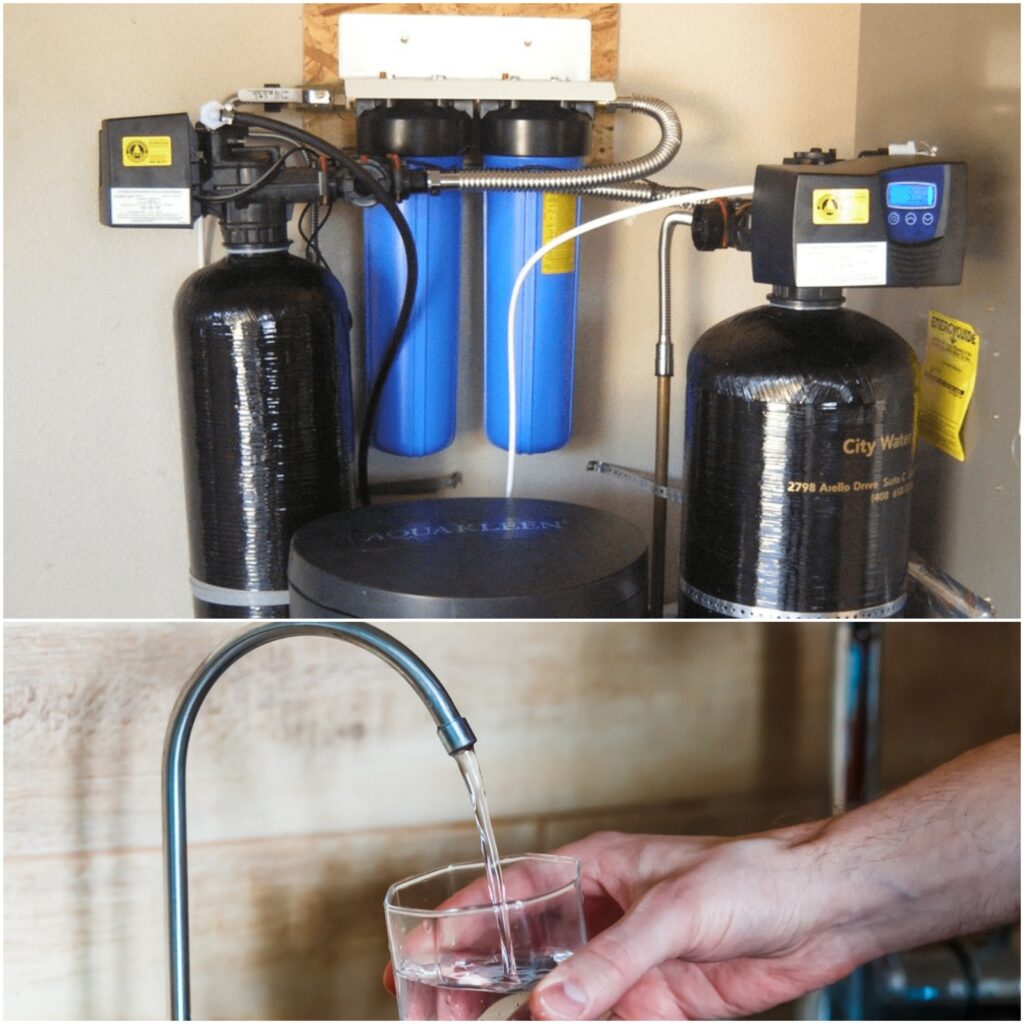
Signs Your Filtration System Needs Immediate Attention
1. Decrease in Water Flow Rate
The water flow from your filtration system may have slowed down, which could indicate a buildup in the system or blocked air filters.
If ignored, this can lower the efficiency of your home water filtration system and possibly lead to its complete failure.
2. Unusual Taste, Odor, or Discoloration in Water
Clean water should have no coloring or offensive smells, and it should taste fresh.
It can be a sign that the filtration system is not efficiently eliminating impurities from your water if you start to notice an odd flavor, smell, or color.
If the issue continues, it is necessary to replace the system or check the filters.
3. Visible Cracks or Damage in Filters or Components
Regularly check your system for noticeable harm or cracks in the tanks, pipes, or filters.
Water pollution or leaks could result from any fissures. To preserve water safety, fix or replace any damaged parts as soon as you notice them.
4. Sudden Increase in Utility Bills
Your filtration system may be working harder than it should if you see a considerable increase in your electricity or water expenses.
This may occur if the system is ineffective, broken, or congested. If this occurs, evaluate the system to see if any repairs or maintenance are required to get it operating normally again.
Expert Tips for Longevity and Efficiency
1. Invest in High-Quality Replacement Filters
The secret to maintaining home water filtration system continuous performance is to use high-quality replacement filters.
Since less expensive filters might seem like a good value, they frequently function worse and may break down more quickly.
Purchasing right, well regarded filters provides optimal system performance, preventing dangerous impurities from entering your water and increasing the system’s life.
2. Use a Pre-Filter for Sediment-Heavy Water Sources
Consider installing a pre-filter if you reside in a region where the water is rich in sediment, such as rural areas with well water.
Before they get to your primary filtration system, pre-filters capture bigger particles like sand, dirt, and debris.
This smooth’s the burden on your system, avoiding blockages and allowing the primary filter to concentrate on eliminating tiny impurities.
Also, it helps your filters last longer, increasing the system’s overall effectiveness.
3. Schedule Annual Professional Inspections
It is a good idea to schedule a yearly expert inspection even if regular maintenance is essential.
Experts are able to look for problems you might miss, such concealed leaks or more complicated concerns.
To preserve the system’s durability and efficiency, they can also make sure that it continues to fulfill the most recent water safety regulations.
4. Avoid Overloading the System
Pay attention to how much water your family uses. Your home water filtration system may become overworked and experience excessive damage if you use a lot of water.
Reduce the amount of water that is used needlessly and refrain from using several water-consuming appliances at once.
By controlling your water use, you can avoid overtaxing the system and maintain its optimal performance.
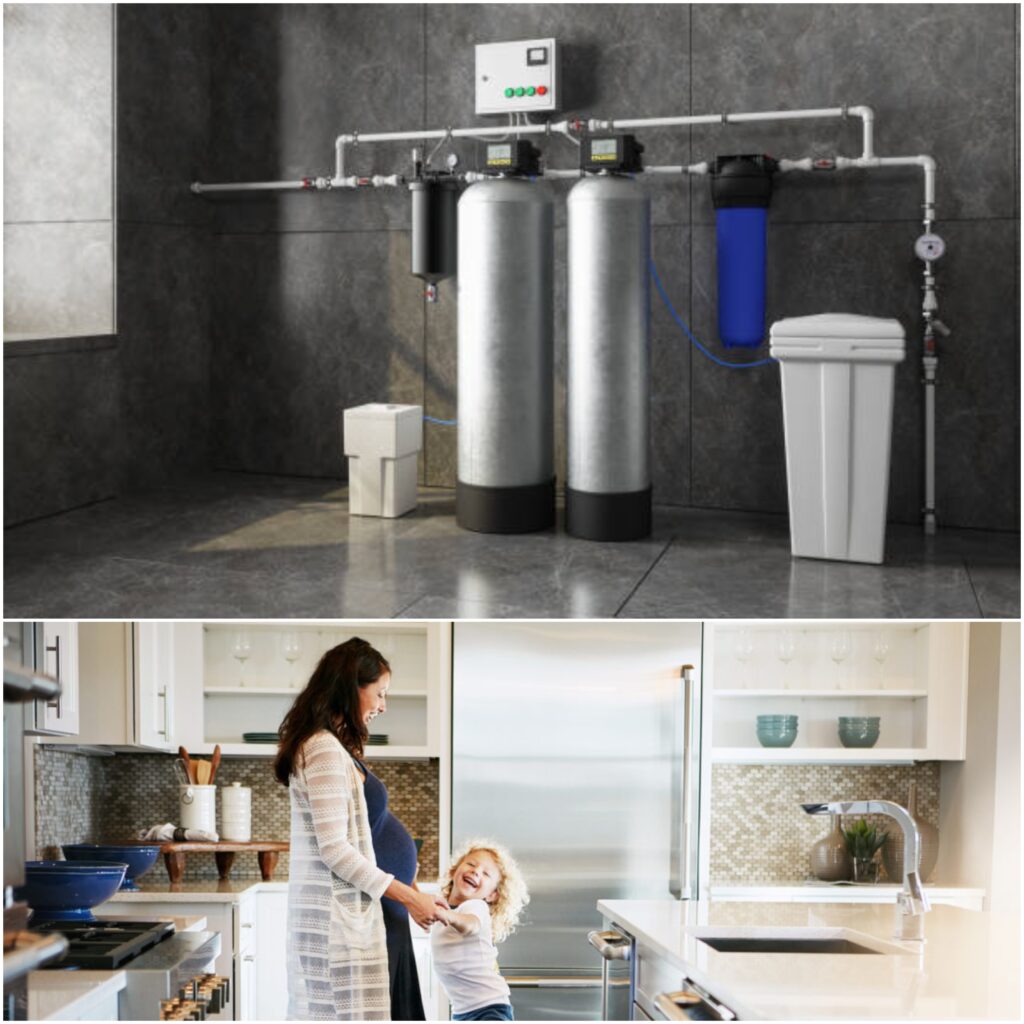
Bottom Line
For you and your family to have access to safe, clean water, your home water filtration system must be maintained. Now is the ideal time to plan maintenance for your water filtration system, if you have not already, or perhaps think about upgrading to an advanced model to suit your demands. By doing this, you may rest easy knowing that your water is always safe to drink, fresh, and clean. Act now to protect your family's health and safety by providing home water filtration system the attention it needs.

